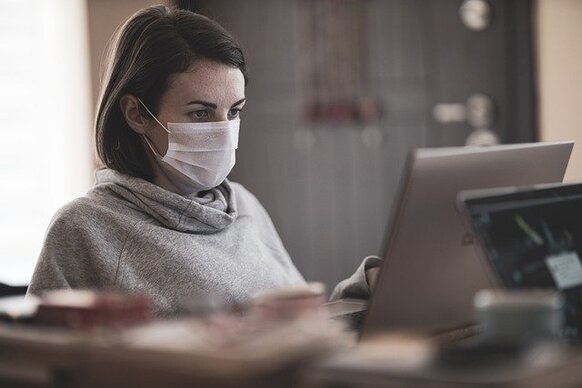|
By Attorney Kelly Jesson
Business owners around the country are starting to reopen their businesses up to employees and customers. However, regardless of government announced “phases,” businesses owe a duty to their employees and customers to keep them safe while on the premises. Lawsuits are starting to pop up, according to Market Watch. What can you do to limit your potential liability? Businesses should follow healthcare and government recommendations, such as wiping down surfaces, frequent hand washing, wearing masks, socially distancing, etc. These recommendations sometimes change, so business owners should stay abreast of updates. Keeping your employees from getting sick on the job in the first place is key: in a worker’s compensation case, all the worker has to do is prove they were injured on the job and there’s a causal connection between the two. For example, a grocery store cashier may have a claim due to exposure to the public. A worker’s compensation claimant does not need to prove that the business was negligent. For businesses that don’t have a large volume of public traffic (such as law firms), owners may ask patrons to sign a document before coming into the premises stating that they do not have COVID-19, are experiencing no symptoms, and they have not been around anyone with COVID-19 or who has otherwise been experiencing symptoms. While patrons can, of course, lie on these forms, at least it’s one additional step that business owners can show that they are taking to protect their employees and other customers. Showing that you are taking the necessary steps to keep people safe is important in defense of personal injury lawsuits, where the plaintiff has to show not only causation (that they caught COVID-19 at your business) but negligence (that you failed to act with reasonable care). A defense to a negligence action is “assumption of risk.” Some business owners may ask patrons to sign waivers of claims, saying that the patron is “assuming the risk” of contracting COVID-19 by coming to their establish. For example, someone who voluntarily eats at a restaurant or goes to a nail salon knows that there is a risk that they may be infected, and a business is not guaranteeing 100% that they will not be infected, because there’s no way to do that. Governor Cooper provided business owners with extra protection a couple of weeks ago when he signed the Coronavirus relief bill. The act provides for limited liability for businesses deemed “essential” under the Governor’s prior stay-at-home order. If an employee or customer gets COVID-19 from spending time at an essential business, the business is not liable for damages unless it is “grossly negligent” or worse. Gross negligence is a higher standard than simple negligence. Instead of a plaintiff showing the absence of reasonable care in a negligence lawsuit, a plaintiff would have to show the conscious disregard for reasonable care to prove that a business was grossly negligent. While essential businesses should be comforted by this law, we are of the opinion that this should not change how they do business. In fact, if they consciously fail to abide by social distancing and cleaning protocols, they could arguably be grossly negligent. If you have any questions about how to prepare your business for reopening, give Jesson & Rains a call!
0 Comments
Your comment will be posted after it is approved.
Leave a Reply. |
Subscribe to our newsletter.AuthorKelly Rains Jesson Categories
All
Archives
July 2024
|
|
SERVICES |
SUPPORT |
©Jesson & Rains, PLLC ALL RIGHTS RESERVED.


 RSS Feed
RSS Feed

